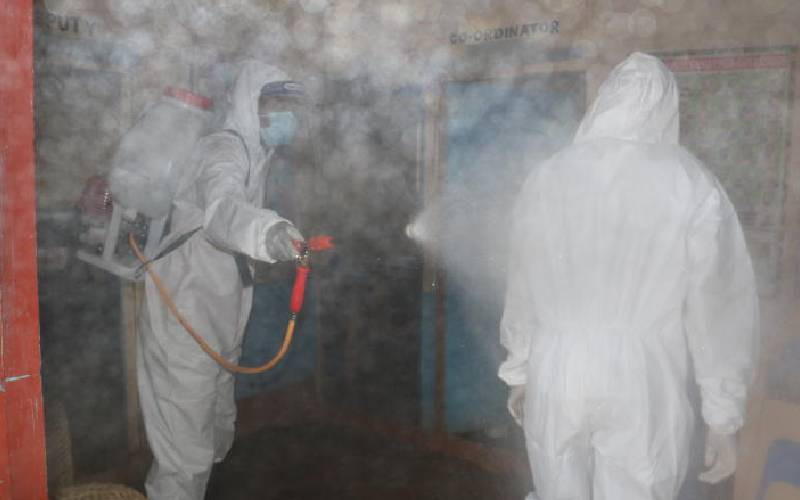
With globalisation, the world has become a massive, singular unit and no amount of restrictions can stop human interaction. It is inexcusable that after HIV/AIDS, Ebola, and Covid-19, the world and its political leaders still have not learnt from past mistakes.
Pandemics know no borders, race, or social class and it's selfish and myopic to fight a disease in a specific territory or region while ignoring your neighbours.
Today, the world is reeling under the current global outbreak of monkeypox, a zoonotic viral disease with a case fatality rate as high as 3 to 6 per cent.
However, African countries and other lower-middle-income countries (LMICs) elsewhere have been left without access to diagnostic technology and vaccines for monkeypox. Additionally, few African countries have performed enough surveillance on the disease to effectively control it epidemiologically.
As of August 31, 2022, 11 African Union Member States had reported 3,549 monkeypox cases (3,066 suspected, 483 confirmed), accounting for 107 deaths, according to the Africa Centres for Disease Control and Prevention. These statistics indicate minimal surveillance and diagnostic capacity, while the case fatality rate of 3 per cent is the highest in the world.
The argument also goes on about whether it must be declared a sexually transmitted infection. African countries are mum and cannot contribute much because they have been left without resources for diagnostic technology, surveillance and infection control. Could this be the case, like HIV, where it was initially discovered among a specific marginalised group? We might not know since African countries and other LMICs have been left out in the fight against this outbreak.
The emergence of zoonotic viral epidemics over the last century has highlighted the importance of diagnostic and genomic surveillance. During the Covid-19 pandemic, discovering the Delta and Omicron variants in South Africa and Botswana, which helped determine the appropriate vaccines for the region and helped vaccine manufacturers stay up to date with adapting their vaccines to remain relevant.
Additionally, genomic surveillance for Covid-19 and sharing that data quickly and globally via GISAID was the primary reason vaccines were developed in record time. The current global health paradigm of the donor-recipient approach, coupled with the capitalist notion of pharmaceutical industries putting profits ahead of humanity, has fueled inequity in access to health interventions, resulting in the poor control of global pandemics.
Global health colonialism, which results in funding, technology, and innovations being withheld entirely from, or solely allocated to developed countries, has allowed some pandemics to ravage certain parts of the world while other regions hoard lifesaving interventions. A gross power imbalance exists when drug and diagnostic technology developers and wealthy countries use patents to withhold lifesaving innovations to protect profits.
Africa, and other developing countries in Asia, termed the Global South, have always borne the burden of infectious diseases, with millions of lives lost in the process. Unfortunately, political leadership and the global public health fraternity choose not to learn from past mistakes. One would expect that lessons learnt from the HIV/AIDS and Covid-19 pandemics would make the world respond better.
Regarding disease control, world leaders must realise that borders, race, and economic status will never act as barriers to disease transmission. Unity and equitable distribution of resources, along with transparency and accountability, are the only ways infectious diseases can be identified, controlled, and eradicated quickly,
The pharmaceutical industry, like all medical interventions, should move away from capitalist idealism and focus on saving lives as the primary goal. The developed world must understand that protecting profits before human lives will always be costly at the end.
Dr Nduduzo is director of quality management and clinical operations at Africa Bureau, AIDS Healthcare Foundation
 The Standard Group Plc is a multi-media organization with investments in media
platforms spanning newspaper print
operations, television, radio broadcasting, digital and online services. The
Standard Group is recognized as a
leading multi-media house in Kenya with a key influence in matters of national and
international interest.
The Standard Group Plc is a multi-media organization with investments in media
platforms spanning newspaper print
operations, television, radio broadcasting, digital and online services. The
Standard Group is recognized as a
leading multi-media house in Kenya with a key influence in matters of national and
international interest.
